Polk County legislators will play prominent roles as session begins Tuesday
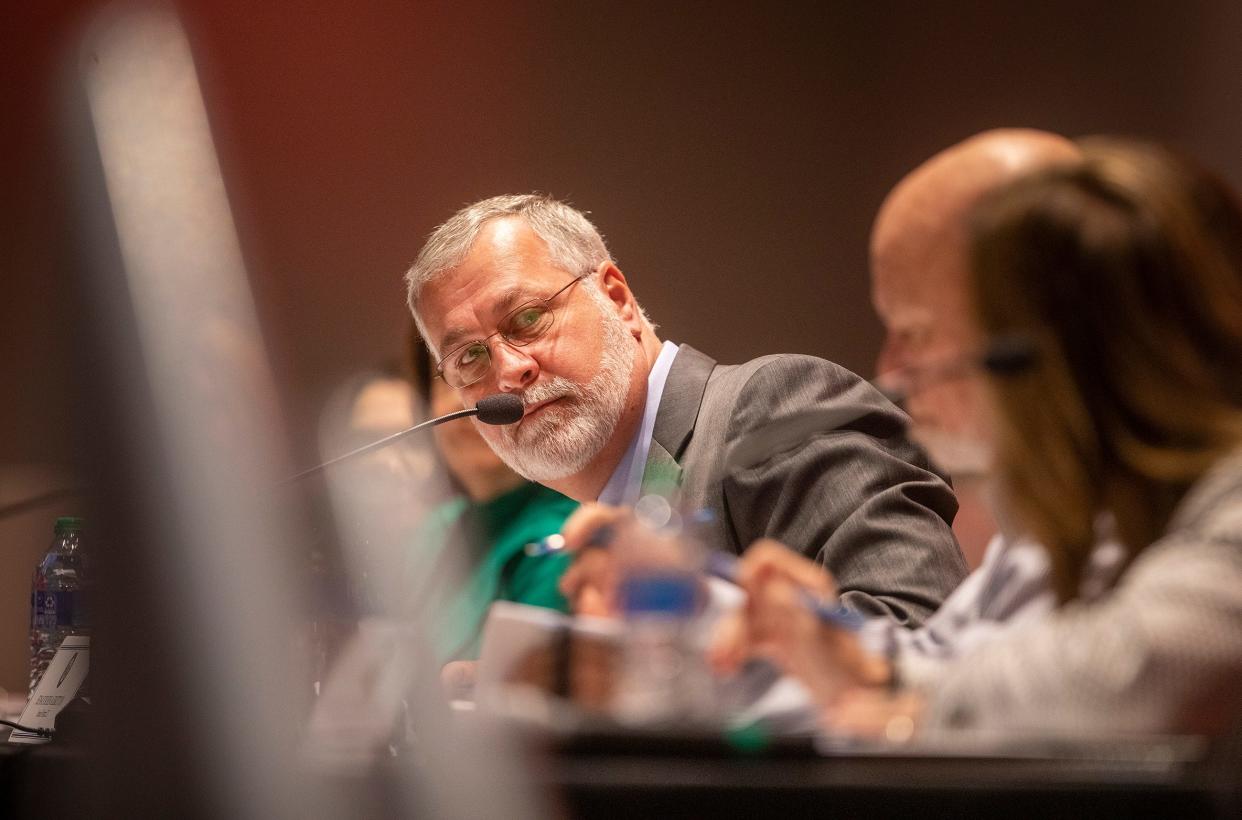
As the Florida Legislature opens its annual session Tuesday, three of Polk County’s six lawmakers hold elevated status.
Sen. Ben Albritton, R-Wauchula, is Senate majority leader and scheduled to become Senate president after this session. Rep. Jennifer Canady, R-Lakeland, enters her second session with the expectation of becoming House speaker for the 2028-2030 term.
Another legislator, Sen. Colleen Burton, R-Lakeland, is shepherding a mammoth health-care bill that is the top priority of the Senate president.
Meanwhile, two legislators are entering their final sessions. Rep. Sam Killebrew, R-Winter Haven, is in his fourth term and barred by term limits from seeking re-election. Rep. Melony Bell, R-Fort Meade, will leave the Legislature to run for Polk County supervisor of elections.
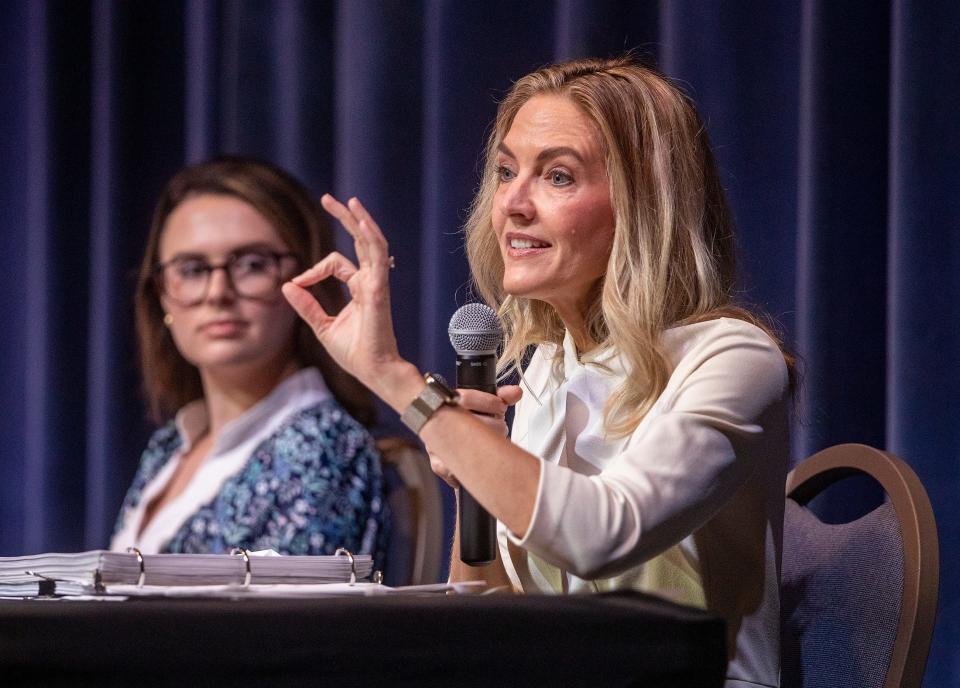
The Legislature meets early this year for its two-month session because it is an election year. In other years, the session begins in March. Albritton, Canady and Rep. Josie Tomkow, R-Polk City, are running for re-election.
Albritton, whose district covers most of Polk County south of Winter Haven, served in the Florida House for eight years before joining the Senate in 2018.
“Something that I've learned over the last 13 sessions is that you just never know what's going to pop up,” Albritton said. “Seems like every session that goes by, I just think to myself, ‘Wow, next session, there is no way it's going to be this busy again.’ I have every expectation this session is going to be as wide open as any other one we've had.”
More action on insurance?
Both Albritton and Burton said the Legislature will again devote attention to property insurance. Floridians have endured soaring insurance rates in recent years, as some companies have folded or stopped issuing policies in the state.
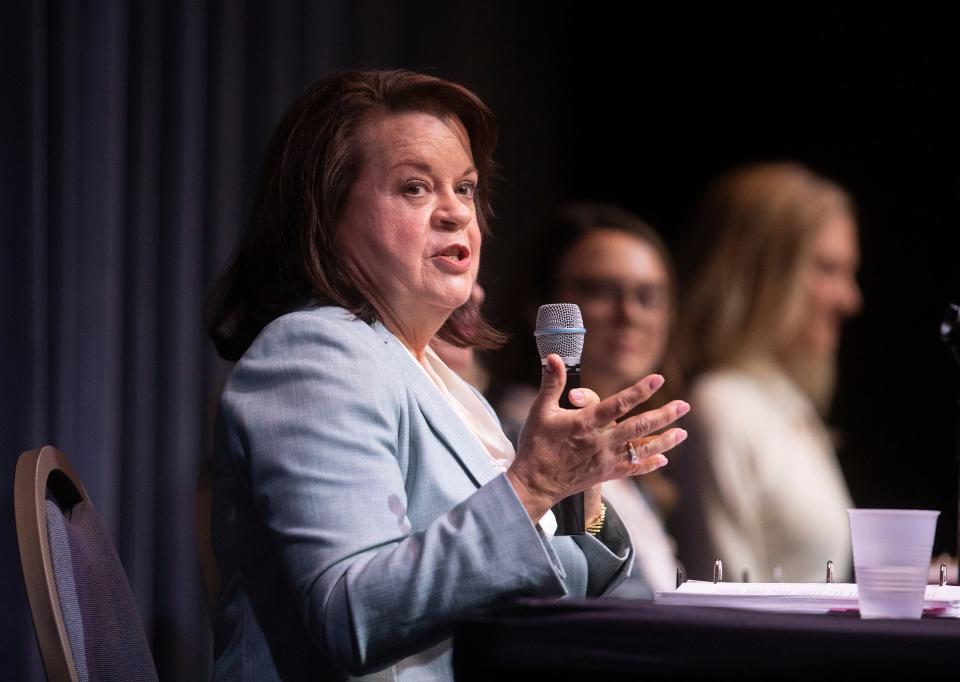
The Legislature passed a series of bills during two special sessions in 2022 and last year’s regular session aimed at providing relief. Among other actions, lawmakers created a $1 billion reimbursement fund for insurers, changed the property insurance claims process and took steps to reduce enrollment in the state-supported Citizens Property Insurance Corp.
State leaders have said that it will take time before the actions moderate the insurance premiums that Floridians are paying. Burton said she did not anticipate any major new legislation on property insurance but emphasized that lawmakers understand the magnitude of the issue.
“We've done so much, and unfortunately and frustratingly, I will say, for a lot of Floridians, it's not a quick fix, right?” Burton said. “And unless you're paying attention to all of the details and the nuances in insurance, and you're just getting an insurance bill where your rates have gone up again, you’re wondering what's happening.”
Burton said that more insurance companies are now writing policies in Florida and that other signs suggest the market is stabilizing.
“So things are looking like they're going in the right direction, for sure,” she said. “But it's certainly the number one, if not the number two, issue on the minds of Floridians, when I talk to people.”
Bell said that the financial outlook seems favorable entering her sixth and final session as a legislator.
“The revenue stream’s looking good, with the tourism back and all, so our revenue’s back up,” Bell said. “So I would see a lot of things getting funded this year that maybe did not (last session).”
One dynamic to watch in this year’s session: How much influence will Florida Gov. Ron DeSantis exert? DeSantis, first elected in 2018, has actively directed legislative priorities in the past five sessions, even asserting control over the rewriting of congressional district maps in the 2022 session.
Shortly after last year’s session ended, DeSantis launched his long-anticipated campaign for president as a Republican. The Iowa Caucus takes place Jan. 15, followed by primary elections or caucuses in more than 20 states before the scheduled end of the session. As he campaigns in other states, how much sway will DeSantis hold over the Legislature?
“If this had been going on 25 years ago, I would say it will have a substantial impact,” Albritton said. “But being that it’s happening today, and this is what I mean by that, with cell phones and emails and the kind of connectivity that people work miles and miles away from their job site, I don't have any concerns about the flow of session or the urgency of session, from the governor's office or anybody else, as a result of him running for president.”
For the second straight session, Republicans hold supermajorities in both chambers, with a margin of 85 to 35 in the House and 28 to 12 in the Senate.
Canady, Killebrew and Tomkow did not respond to interview requests.
Here is an overview of bills filed by Polk County legislators:
Florida House
Bell is vice chair of the House’s Education and Employment Committee and the Agriculture and Natural Resources Appropriations Subcommittee.
As of Thursday, Bell had filed five bills as sole sponsor. One of those (HB 451), a companion to a bill filed by Burton in the Senate, seeks a permanent allocation of $20 million to the Florida Department of Environmental Protection to fund water projects in the Green Swamp. The bill refers to a measure passed in 2017, the Heartland Headwaters Protection and Sustainability Act, intended to safeguard the sources of the Alafia, Hillsborough, Kissimmee, Ocklawaha, Peace and Withlacoochee rivers.
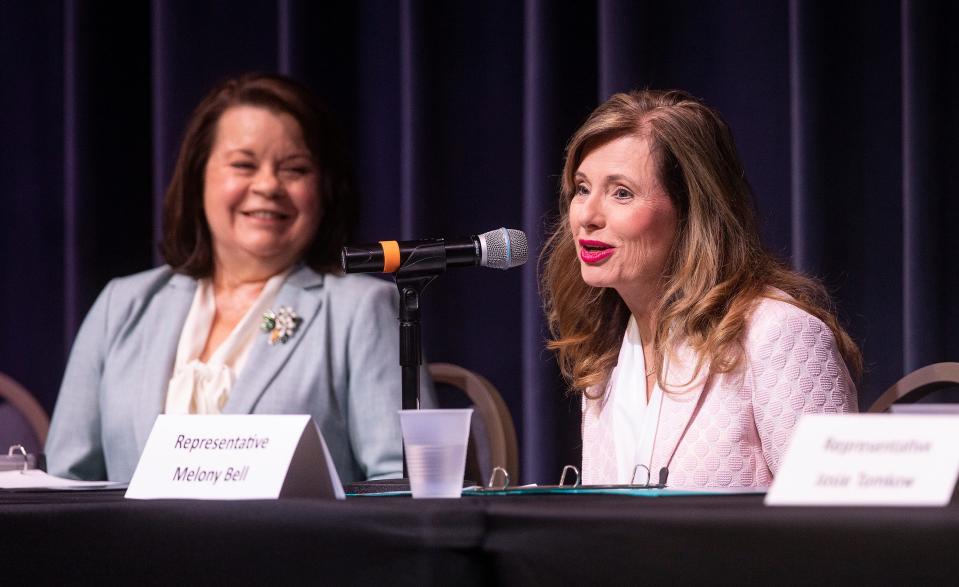
The matching bills say the funds would be used for projects “that protect, restore, or enhance the headwaters of the river systems located in the Heartland Region of Central Florida.”
Bell filed a bill (HB 959) that would increase access to mental-health services for inmates in state prisons. She said that legislation emerged from discussions with Ricky Dixon, secretary of the Florida Department of Corrections.
Form 6 Eagle Lake nearly loses majority of commission in resignations over financial forms
The Fort Meade lawmaker also sponsored a bill that would allow people with diabetes to get emergency refills of insulin and related supplies or equipment up to three times a year. One of Bell’s adult daughters has Type-1 diabetes.
Canady is vice chair of the House Infrastructure Strategies Committee and sits on one other committee and five subcommittees. She co-sponsored a bill passed in last year’s session and signed into law by DeSantis barring almost all abortions beyond six weeks of pregnancy.
The law is on hold pending a review by the Florida Supreme Court of a 15-week ban enacted in the previous session.
As of Thursday, she was the sole sponsor on three bills. One of them (HB 275) would establish penalties for causing intentional damage to critical infrastructure, such as electrical power plants and distribution equipment, natural gas storage centers or pipelines, wireless communications facilities, water treatment facilities, deepwater ports and railroad switching yards.
Such actions would be classified as a second-degree felony. A violator found liable in a civil action would have to pay a utility or other owner an amount equal to three times the actual cost of damages.
Another of Canady’s bills (HB 775) would expand the circumstances under which parents may surrender infants. After delivery in a hospital, a parent could leave the infant with medical staff or a licensed health care professional. The bill would also allow a parent to call 911 and surrender an infant to an emergency medical service provider.
The measure would increase the age at which an infant may be surrendered legally from seven days to 30 days.
Her other bill (HB 523) creates the Florida Seal of Fin Arts Program in the Department of Education.
Killebrew is the only Polk County representative who is not the chair or vice-chair of a committee. He sits on three committees and three subcommittees, including the Ways and Means Committee.
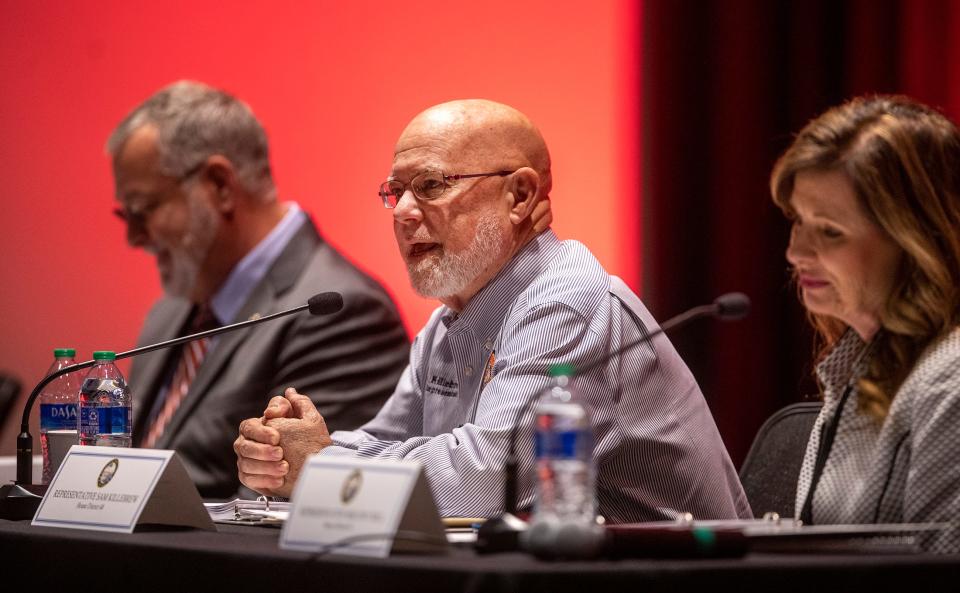
As of Thursday, Killebrew had filed the maximum seven bills allowed, with two others withdrawn before introduction. Under one bill (HB 79), judges could order someone convicted of driving or boating under the influence to pay financial support for each child of a victim killed in a resulting vehicle crash, up to age 18.
Another bill (HB 303) would allow employees and contractors of city or county animal control authorities or sheriff departments to give rabies vaccinations to dogs, cats and ferrets in the custody of the agency under “indirect supervision” of a veterinarian. Killebrew also filed a bill (HB 1033) that would prohibit pet stores from selling dogs or cats.
Killebrew has introduced legislation (HB 475) to provide an annual sales tax holiday for retail sales of “micromobility” vehicles, such as electric bicycles and scooters that travel at under 30 mph. Another of his bills (HB 649) would allow utility terrain vehicles to be driven at all hours on nonfederal roads with speed limits of less than 55 mph.
Tomkow, a third-term legislator, is chair of the Pre-K-12 Appropriations Subcommittee and is assigned to two committees and one other subcommittee.
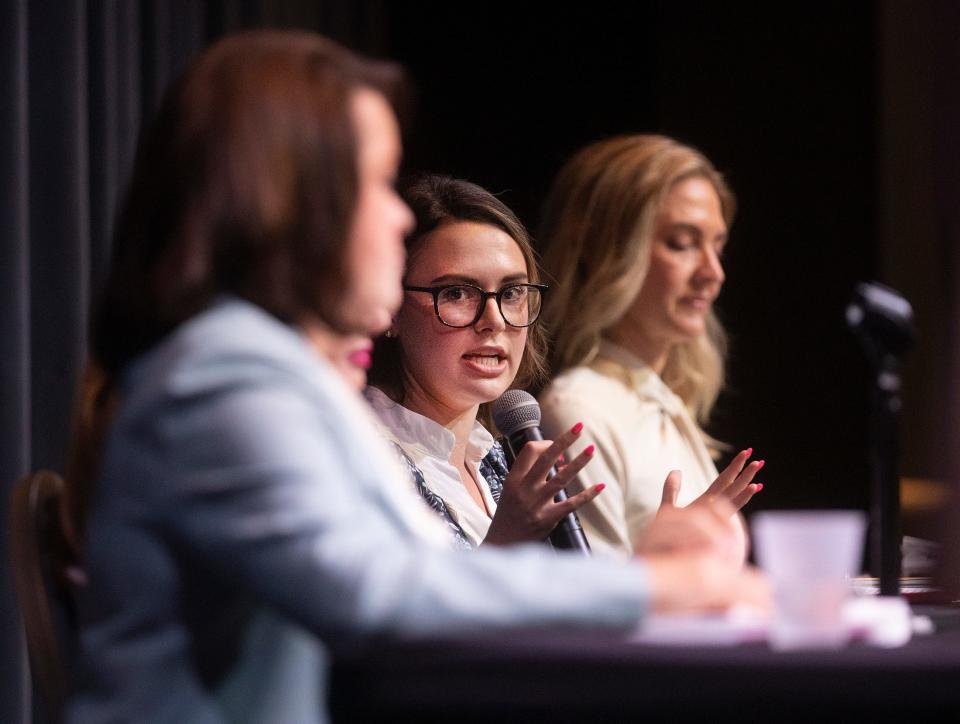
As of Thursday, Tomkow had filed one bill (HB 1147), which would extend the period for a promotional rate given to broadband providers to provide attachments needed to add service to unserved or underserved users from July 1, 2024, to the end of 2028.
Florida Senate
Albritton chairs the Select Committee on Resiliency and sits on five other committees, including the Joint Legislative Budget Commission. In keeping with legislative custom, as Senate majority leader he is not filing any bills of his own.
Albritton said he expects the Legislature to advance bills focused on water quality as well as rules for homeowners associations and condominium associations.
Burton, a first-term senator who served eight years in the House, is chair of the Health Policy Committee and vice chair of the Judiciary Committee. In early December, Senate President Kathleen Passidomo, R-Naples, joined with Burton and Sen. Gayle Harrell, R-Stuart, in announcing plans for a package of legislation labeled Live Healthy. The measures seek to increase Florida’s health-care workforce and increase access to care, the trio said.
“Approximately 300,000 people a year are moving to Florida, and, as I oftentimes say, they're not bringing their health-care providers with them,” Burton said. “We're not having a proportionate number of health-care providers move here to care for all of us who are here as well.”
Passidomo began talking in the late spring about making health care her chief priority in the 2024 session, and Burton said she has engaged in serious discussions with the Senate president since last summer. Burton’s Health Policy Committee developed SB 7016, which contains multiple elements and carries a cost of about $800 million.
The 234-page measure aims to entice medical students and recent graduates to Florida through a variety of incentives, including a “very robust” tuition-reimbursement program, Burton said.
The bill would create and subsidize a program in which medical residents and students could do clinical work at nonprofit health centers, rural health clinics and behavioral health clinics. It would also expand training opportunities to nurses and behavioral health-care providers willing to work in underserved areas.
Among other provisions, the legislation is intended to widen the use of telehealth for maternal care and to reduce pressure on emergency departments by requiring hospitals to develop plans for directing patients with non-urgent medical needs to more appropriate treatment options.
In addition to that voluminous bill produced by her committee, Burton had introduced 12 bills as primary sponsor as of Thursday.
One of her bills (SB 238) would shield nursing homes and assisted-living facilities from punitive damages for alleged negligence unless a court finds that a specific individual or corporate defendant “actively and knowingly participated in intentional misconduct” or gross negligence.
Another bill (SB 1224) contains revisions to Florida’s Guardian ad Litem program, which advocates for children in the foster care system. The legislation would include the Statewide Guardian ad Litem Office among other agencies assigned to develop a plan for promoting adoption, supporting families and preventing abuse, abandonment and neglect of children. It would direct courts to appoint a guardian ad litem at the earliest possible point of a child’s involvement with the legal system.
Burton submitted legislation (SB 986) that would allow owners to alter the topography of their land, such as diverting or impeding the flow of water or impacting wetlands, “if the activities or improvements result in a net increase in wetland resource functions.” Killebrew filed a similar bill in the House but withdrew it prior to introduction.
Gary White can be reached at [email protected] or 863-802-7518. Follow on X @garywhite13.
This article originally appeared on The Ledger: Polk County legislators will play key roles as session begins Tuesday
